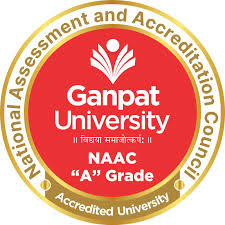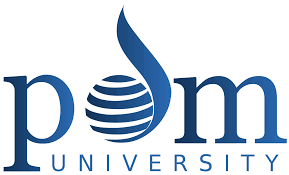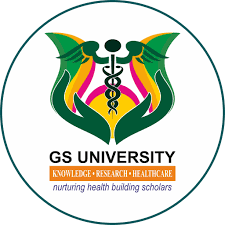Bachelor of Science in Nursing - (B.Sc. Nursing)
Universities
31
Eligibility
10+2
Course Introduction
Bachelor of Science in Nursing
B.Sc. Nursing, which stands for Bachelor of Science in Nursing, is a professional undergraduate degree program that prepares students to become qualified and compassionate nurses. This course typically spans over four years and equips students with the essential knowledge and practical skills needed to provide healthcare services, support patients, and promote well-being. During the B.Sc. Nursing program, students learn about various aspects of healthcare, including anatomy, physiology, pharmacology, and nursing ethics. They also gain hands-on experience through clinical rotations in hospitals and healthcare settings, where they apply their learning to real-life patient care situations. Upon successful completion of the B.Sc. Nursing program graduates can pursue careers in diverse healthcare settings such as hospitals, clinics, nursing homes, and community health centers. They play a vital role in healthcare teams, providing care, comfort, and support to patients while promoting health and preventing illness. B.Sc. Nursing is a rewarding and fulfilling career path for those who aspire to make a positive impact on people's lives through compassionate healthcare.
Course Overview
A Bachelor of Science in Nursing (B.Sc. Nursing) is a comprehensive program that prepares students to become skilled and compassionate healthcare professionals. This degree typically spans four years and covers various aspects of nursing, including anatomy, physiology, pharmacology, and medical-surgical nursing. Students also learn about maternal and child health, psychiatric nursing, and community health. The program includes both classroom learning and hands-on clinical experience, where students care for patients under the supervision of experienced nurses and instructors. B.Sc. Nursing programs emphasize critical thinking, communication skills, and ethical practices, essential for providing high-quality patient care. Graduates can pursue diverse career opportunities in hospitals, clinics, home healthcare, and more. It's a rewarding path for those who want to make a meaningful difference in people's lives and contribute to the healthcare industry.
Course Eligibility
To enroll in a B.Sc. Nursing course, typically, you need to have completed your high school education (10+2) with a science background, including subjects like Biology, Chemistry, and Physics. You may also be required to pass an entrance exam or meet other specific admission criteria set by the institution you're applying to.
Universities
Admission Process
There is an online admissions process available at Online Bachelor of Science in Nursing, therefore there is no need to physically visit the campus to apply for admission. There is no entrance exam required to apply for admission to Bachelor of Science in Nursing Online because admissions are made directly. The following describes the Bachelor of Science in Nursing's admissions process for online courses:
Ask Admission QueryBrowse our diverse range of programs like MBA, BBA, MA, B.COM, Machine Learning, Python and many more...
Fill online application form with accurate.
You get your own education mentor who helps with all your questions about courses, university, colleges and fees. They're there to make things clear and easy for you.
Make your college application faster by sending your documents and paying the registeration fees.
Upon acceptance, pay fees to secure your seat and finalize enrollment
Confirm your class date, seat, enrollment number and get your gift as reward points
Course Subjects
- #Anatomy and Physiology
- #Nursing Fundamentals
- #Microbiology
- #Pharmacology
- #Maternal and Child Health Nursing
- #Pediatric Nursing
- #Gerontological Nursing
- #Critical Care Nursing
Bachelor of Science in Nursing's Highlights
1
Clinical Experience
B.Sc. Nursing programs provide extensive clinical training, allowing students to gain hands-on experience in various healthcare settings. This practical exposure helps students develop essential nursing skills and prepares them for real-world patient care.
2
Diverse Career Opportunities
Upon graduation, B.Sc. Nursing graduates have a wide range of career options. They can work in hospitals, clinics, nursing homes, schools, public health agencies, and even pursue specialized fields like pediatric nursing, critical care nursing, or psychiatric nursing.
3
Holistic Healthcare Education
B.Sc. Nursing programs offer a comprehensive understanding of healthcare, including anatomy, physiology, pharmacology, and medical-surgical nursing. Students also learn about the importance of holistic care, which considers the physical, emotional, and psychological needs of patients.
4
Emphasis on Critical Thinking
Nursing programs emphasize critical thinking and problem-solving skills. Students learn to make quick and informed decisions, especially in emergency situations, which are crucial in the healthcare field.
5
Ethical and Professional Standards
B.Sc. Nursing courses instill a strong sense of ethics and professionalism in students. They learn to uphold patient confidentiality, provide compassionate care, and adhere to ethical guidelines, ensuring the highest standards of patient well-being and safety.
Bachelor of Science in Nursing's Freights
The cost of pursuing a BSc Nursing program typically varies, with average fees ranging from INR 8,500 to INR 1.3 lakh. After completing their BSc Nursing degree, graduates have a variety of job options to choose from, including roles such as Executive Administrative Assistant, Staff Nurse, and Emergency Medical Technician, among others.
Bachelor of Science in Nursing's Specialization
B.Sc. Nursing programs offer various specializations, including Pediatric Nursing, Psychiatric Nursing, Critical Care Nursing, Obstetric and Gynecological Nursing, and Community Health Nursing. These specializations allow students to focus on specific areas of healthcare, preparing them for specialized roles in nursing practice and patient care.
- #Pediatric Nursing
- #Critical Care Nursing
- #Psychiatric Nursing
- #Community Health Nursing
- #Obstetric and Gynecological Nursing
Course Job
- #Staff Nurse
- #Critical Care Nurse
- #Pediatric Nurse
- #Psychiatric Nurse
- #Community Health Nurse
- #Obstetric and Gynecological Nurse
- #Emergency Room Nurse
- #Home Health Nurse
Course Types
Offline B.Sc. Nursing
Offline B.Sc. Nursing courses typically offer full-time, on-campus programs. Students attend classes in physical classrooms, engage in laboratory work, and interact directly with professors and peers. These traditional programs provide hands-on learning experiences and face-to-face interactions, fostering a comprehensive understanding of Pediatric Nursing, Critical Care Nursing, Psychiatric Nursing etc to the students.
Why this Course ?
- A B.Sc. Nursing course is chosen for its potential to make a meaningful impact in healthcare. It equips individuals with the knowledge and skills to provide compassionate and competent patient care. With diverse career opportunities, it's a fulfilling path for those who aspire to serve the community, promote health, and save lives.
- Passion for Healthcare: Many individuals have a genuine passion for helping others and making a positive impact on people's lives. Nursing offers a direct and meaningful way to do this by providing healthcare and emotional support to patients in need.
- Job Stability and Demand: Nursing is a profession with high job security and a growing demand for qualified professionals. The healthcare industry consistently needs skilled nurses to care for patients of all ages and backgrounds.
- Diverse Career Opportunities: Nursing offers a wide range of career pathways, allowing individuals to specialize in areas like pediatrics, critical care, mental health, and more. This diversity enables nurses to find a niche that aligns with their interests and goals.
- Global Opportunities: Nursing is a profession that is in demand worldwide. B.Sc. Nursing graduates often have the option to work in different countries, gaining international experience and cultural exposure.
- Personal Fulfillment: Nursing can be a highly rewarding career. The ability to comfort and heal others during their most vulnerable moments can bring a deep sense of personal fulfillment and satisfaction.
Frequently Asked Questions
A 1 : The B.Sc. Nursing program is an undergraduate degree program that educates students in nursing theory, clinical practice, and healthcare sciences. It prepares them to become registered nurses (RNs) who provide patient care in various healthcare settings.
A 2 : B.Sc. Nursing graduates have promising career prospects, including roles as staff nurses, nurse educators, nurse administrators, and opportunities in specialized fields like critical care, pediatrics, and public health. The demand for skilled nurses remains consistently high, ensuring job stability and growth.
A 3 : Through a B.Sc. Nursing program, you can develop skills in patient care, critical thinking, communication, teamwork, problem-solving, medical knowledge, ethical practice, and adaptability, preparing you for a successful and compassionate nursing career.
A 4 : A B.Sc. Nursing program typically takes four years to complete, providing students with a comprehensive education in nursing theory, clinical practice, and healthcare sciences.
A 5 : Credit transfer policies vary by institution. Generally, some credits from a community college may be transferable to a B.Sc. Nursing program, but it depends on the specific courses, grades, and the receiving institution's policies. Contact the nursing program or academic advisor for details.






























